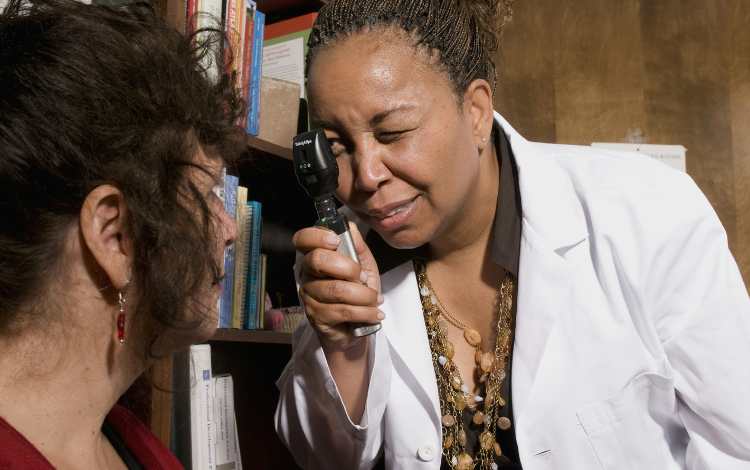
Eye health can be a general indicator of overall well-being. Contrary to popular belief, poor vision does not automatically develop as a person grows older, and there are different health factors that affect an individual’s eyesight in advanced age.
In line with this, a report by the CDC found that approximately 12 million Americans over 40 years old have vision impairment, including those who are blind, have vision impairment after correction, and have refractive errors that remain untreated or uncorrected.
The same report also notes that these vision complications can lead to significant social and economic costs, from the loss of productivity to disability and a diminished quality of life.
As such, it’s important to understand how your eyes are indicative of your general well-being and what you can do to address these complications before they develop and pose serious risks.
The Eyes as a Window to Overall Health
According to the American Optometric Association, having a comprehensive eye exam with an optometrist can detect and reveal different health conditions.
For eye-related conditions, this kind of exam can detect diseases and disorders such as dry eyes, cataracts, age-related macular degeneration, diabetic retinopathy, glaucoma, and retinal detachments.
However, it can also help detect systemic health problems such as diabetes, hypertension, and even brain tumors.
Additionally, the link between eye health and mental health is still an emerging area of research.
A positive mind creates a positive life.
Learn how to think in ways that lift and empower you.
Still, health experts believe that psychiatric illnesses like depression and bipolar disorder and eye conditions like glaucoma may share underlying vascular or neurological causes, demonstrating the importance of eye exams for holistic health.
During an eye exam, the doctor can detect diabetic retinopathy since it involves the weakening of the tiny blood vessels in the back of the eye due to uncontrolled blood sugar levels in people with diabetes.
This can result in bleeding, growth of new abnormal blood vessels, and swelling of the retina. If left untreated, it can lead to blindness. Furthermore, an optometrist may be able to measure the diameter of blood vessels and determine whether a patient is at risk of hypertension.
The same eye exam can also reveal brain tumors, as it can identify any swelling of the optic disc, which is also a condition called papilloedema. This can also identify when there is pressure on the optic nerve.
Both of these conditions can be caused by intracranial hypertension (IH), which indicates a build-up of pressure around the brain and shows the possibility that something is interfering with the normal circulation of cerebrospinal fluid (CSF).
Moreover, symptoms such as unusual dilation of the pupil in one or both eyes and the color of the optic nerve can also indicate that further investigations are required.
Improving Eye Health
Considering the impact of the eyes on overall well-being, it is important to put in the effort to maintain good eye health. For starters, you should regularly schedule an eye test with a doctor to take care of your vision.
About 93 million adults in the US are at high risk for vision loss, yet only half visited an eye doctor in the past 12 months.
These at-risk adults must get a comprehensive annual eye exam, while asymptomatic or low-risk adults over 40 can go at least once every 24 months.
Not only does this help address preventable vision loss, but it can also detect other serious health conditions before they can pose bigger risks.
Another step you can take to help improve your eye health is to quit smoking if it’s a habit you have. In addition to damaging the lungs and skin, smoking increases the risk of cataracts.
Some of the chemicals in tobacco smoke can accumulate in the lens of the eye, leading to damage and causing blurry or hazy vision.
Advanced age also makes you more susceptible to cataracts, so it’s good to make preventive interventions to avoid it altogether.
A previous post on smoking cessation can lend insight into this lifestyle change and help you reshape your mindset toward smoking.
Above all, it’s also important to take sun protection seriously. Exposure to UV rays can also lead to cataracts, in addition to macular degeneration-skin cancer around the eyelids.
You can protect your overall health by wearing sun-protective gear and sunglasses with heavy-tinted lenses to block out both sun and UV rays and prevent bodily damage when you’re outdoors.
For more health and wellness articles, feel free to explore the dedicated column.

